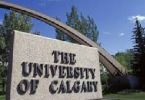Study and Work in Australia/ Apply Now
What Employers Are Offering
- ✔ Employer-provided health & medical insurance
- ✔ Visa sponsorship & legal work authorization
- ✔ Relocation assistance & settlement support
- ✔ Long-term employment & benefit coverage
- ✔ Permanent residency pathways (eligible roles)
Australia is a popular destination for international students seeking high-quality education and diverse
work opportunities. The country offers world-class universities, a multicultural environment, and a
strong economy that supports part-time and post-study employment. This guide provides an overview
of studying and working in Australia, covering essential aspects such as education systems, visa
requirements, employment opportunities, and living conditions.
Employment Benefit Eligibility Information
Applicants searching for international employment opportunities often compare roles offering employer-sponsored insurance coverage, relocation support, and legally compliant work authorization programs.
- Jobs with employer-provided health insurance benefits
- Visa sponsorship positions including medical coverage
- Full-time employment with dental and vision insurance
- High salary jobs offering worker protection benefits
- Healthcare and caregiver roles including insurance coverage
Understanding benefit eligibility requirements helps applicants evaluate qualified employment offers before submitting immigration applications.
1. Benefits of Studying and Working in Australia
-Quality Education: Australia is home to several top-ranked universities known for their research and
teaching excellence across various fields.
– Work Opportunities: International students can work part-time during their studies and have
opportunities for post-study employment.
– Multicultural Society: Australia’s diverse and inclusive culture provides a welcoming environment for
students from around the world.
– High Standard of Living: The country offers a safe and comfortable lifestyle with modern infrastructure
and healthcare facilities.
– Natural Beauty: From beaches to mountains and unique wildlife, Australia offers numerous
opportunities for exploration and recreation.
Insurance & Worker Protection Requirements
Before visa approval, many employer-sponsored programs require proof of valid health insurance coverage and worker protection compliance. Immigration authorities verify medical coverage eligibility before granting work authorization.
Depending on the destination country, foreign employees may also need workplace injury protection, employer liability coverage, and travel medical insurance during relocation.
- Mandatory health insurance for visa holders
- Workplace accident and employer liability protection
- Travel and relocation medical coverage
- Insurance verification during immigration processing
Confirm insurance compliance requirements before submitting a work permit application.
2. Studying in Australia
2.1. Education System
– Universities: Offer undergraduate, postgraduate, and doctoral programs across various disciplines such
as engineering, medicine, business, and arts.
– Vocational Education and Training (VET): Provides practical and skill-oriented courses through TAFE
institutes and private colleges, preparing students for specific industries.
– English Language Courses: Designed for students aiming to improve their English proficiency for
academic or professional purposes.
2.2. Top Universities
– University of Melbourne
– Australian National University (ANU)
– University of Sydney
– University of Queensland
– Monash University
These institutions are globally recognized for their academic excellence and research contributions.
2.3. Application Process
1. Choose a Course and Institution: Research courses that align with your career goals and select a
suitable university or college.
2. Check Entry Requirements: Ensure you meet academic and English language proficiency
requirements.
3. Prepare Necessary Documents: Academic transcripts, English test results (e.g., IELTS, TOEFL), personal
statement, and references.
4. Apply Directly or Through an Agent: Submit your application online or through an authorized
education agent.
5. Receive Offer Letter: If accepted, you’ll receive a Confirmation of Enrollment (CoE).
6. Apply for Student Visa: Use the CoE to apply for the appropriate student visa.
7. Arrange Accommodation and Travel: Plan your living arrangements and book your travel to Australia.
2.4. Tuition Fees
– Undergraduate Programs: AUD 20,000 – AUD 45,000 per year
– Postgraduate Programs: AUD 22,000 – AUD 50,000 per year
– VET Courses: AUD 4,000 – AUD 22,000 per year
– English Language Courses: AUD 300 – AUD 450 per week
Fees vary depending on the course, institution, and duration.
2.5. Scholarships and Financial Aid
– Australia Awards Scholarships: Government-funded scholarships for students from developing
countries.
– Endeavor Scholarships and Fellowships: Merit-based scholarships for international students.
– University-Specific Scholarships: Many institutions offer scholarships based on academic excellence,
financial need, or specific fields of study.
– International Postgraduate Research Scholarships (IPRS): For high-performing students undertaking
postgraduate research degrees.
Research and apply early for scholarships to increase your chances of receiving financial assistance.
3. Working in Australia
3.1. Work Rights for International Students
– During Study Period: Allowed to work up to 48 hours per fortnight while courses are in session.
– During Scheduled Breaks: Can work unlimited hours during official school holidays.
Ensure your work does not interfere with your study commitments.
3.2. Types of Part-Time Jobs
– Hospitality: Roles in cafes, restaurants, and hotels.
– Retail: Positions in supermarkets, stores, and malls.
– Administration: Office assistant or receptionist roles.
– Tutoring: Providing academic support to other students.
– Campus Jobs: Opportunities within the university such as library assistants or event staff.
3.3. Finding Employment
– Online Job Portals: Seek, Indeed, Gumtree, and LinkedIn.
– University Career Services: Many institutions offer job boards and career counseling.
– Networking: Attend workshops, seminars, and industry events.
– Recruitment Agencies: Specialized agencies can assist in finding suitable positions.
3.4. Minimum Wage
– As of 2023: The national minimum wage is approximately AUD 21.38 per hour.
Wages may vary based on industry, role, and experience.
3.5. Post-Study Work Opportunities
– Temporary Graduate Visa (Subclass 485): Allows graduates to live, study, and work in Australia
temporarily after completing their studies.
– Post-Study Work Stream: For graduates with a bachelor’s degree or higher, valid for 2-4 years
depending on qualification.
– Graduate Work Stream: For graduates with skills related to occupations in demand, valid for 18
months.
– Skilled Migration Programs: Pathways to permanent residency for graduates with qualifications and
skills needed in Australia.
Stay updated on visa regulations as policies can change.
4. Visa Requirements
4.1. Student Visa (Subclass 500)
– Eligibility Requirements:
– Enrolled in a Course: Must have a Confirmation of Enrolment (CoE).
– English Proficiency: Proof through tests like IELTS, TOEFL, or PTE.
– Genuine Temporary Entrant (GTE): Statement indicating the intention to study temporarily in
Australia.
– Financial Capacity: Evidence of sufficient funds to cover tuition, living expenses, and travel.
– Overseas Student Health Cover (OSHC): Mandatory health insurance for the duration of stay.
– Character and Health Requirements: Police clearance and medical examinations may be required.
4.2. Application Process
1. Gather Required Documents: Passport, CoE, English test results, financial proofs, GTE statement, and
OSHC.
2. Complete Online Application: Through the Department of Home Affairs website.
3. Pay Visa Application Fee: Approximately **AUD 650** (subject to change).
4. Attend Biometrics and Health Appointments: If instructed.
5. Wait for Decision: Processing times vary; apply well in advance.
6. Receive Visa Grant: Review visa conditions carefully.
Ensure all information is accurate and complete to avoid delays.
5. Cost of Living
-Accommodation:
-Shared Rental: AUD 95 – AUD 215 per week
– On-Campus: AUD 110 – AUD 280 per week
– Homestay: AUD 235 – AUD 325 per week
– Utilities (Electricity, Gas, Water): AUD 35 – AUD 140 per week
– Food and Groceries: AUD 140 – AUD 280 per week
– Public Transport: AUD 30 – AUD 60 per week
– Entertainment: AUD 80 – AUD 150 per week
Costs vary depending on location, lifestyle, and accommodation type. Major cities like Sydney and
Melbourne are more expensive compared to regional areas.
6. Accommodation Options
– On-Campus Housing: Convenient and provides easy access to university facilities.
– Off-Campus Rentals: Renting apartments or houses alone or with roommates.
– Homestay: Living with an Australian family, offering cultural immersion and support.
– Student Hostels and Dormitories: Affordable and social living environments.
Consider factors like proximity to campus, cost, and personal preferences when choosing
accommodation.
7. Health and Safety
– Overseas Student Health Cover (OSHC): Mandatory health insurance covering medical and hospital
expenses.
– safe Environment: Australia has low crime rates and strict gun control laws.
– Emergency Services: Dial **000** for police, fire, and ambulance services.
– Support Services: Universities offer counseling, health services, and academic support.
Maintain personal safety by following local guidelines and being aware of your surroundings.
8. Cultural and Social Life
– Diverse Communities: Experience a blend of cultures through food, festivals, and community events.
– Recreational Activities: Opportunities for sports, outdoor adventures, and exploring natural
landmarks.
– Student Societies and Clubs: Engage with peers through various interest-based groups.
– Part-Time Studies and Short Courses: Explore additional skills and hobbies alongside main studies.
Embrace the multicultural environment to enrich your educational experience.
9. Tips for Success
– Time Management: Balance study, work, and leisure effectively.
– Networking: Build professional relationships through internships, workshops, and events.
– Financial Planning: Budget wisely to manage expenses and savings.
– Adaptability: Be open to new experiences and adaptable to different situations.
– Seek Support: Utilize university resources and support services when needed.
Conclusion
Studying and working in Australia offers a wealth of opportunities for personal and professional growth.
With its high-quality education system, supportive work regulations, and vibrant culture, Australia
provides an enriching environment for international students. Proper planning and understanding of
requirements will help you make the most of your experience in this dynamic and welcoming country.







